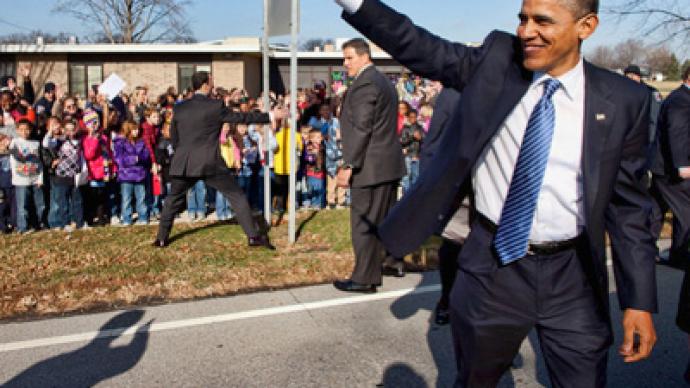Native American poverty continues under Obama

In his opening remarks during the second annual Native American Tribal Conference, US President Barack Obama declared, “So long as I held this office, never again would Native Americans be forgotten or ignored.”
However, the same promises were made a year ago, when Obama pledged a new chapter for Native Americans.The President signed the Tribal Law and Order Act and mandated 90 days for government agencies to implement serious reforms toward Indian country, all in an attempt to reach out to a population that has historically been overlooked and abused by the US government.One year later, little has changed on the Mattaponi Reservation in Virginia.Like the majority of the America’s indigenous population, the Mattaponi have been tucked away to the confines of an Indian Reservation.Beyond the shadows of their ceremonial grounds, the Mattaponi people have lived here for centuries.What was once theirs, meaning 350,000 acres of land, has now been reduced to just over 100 acres.Their population has decreased by 90 percent and poverty levels on the reservation range from 30 percent to 40 percent, a considerably low statistic compared to other Indian Reservations in the country. Native Americans rank the highest in unemployment and poverty rates, infant mortality and life expectancy.According to the 2009 Census Bureau, unemployment in Indian country ranks anywhere between 50 percent and 85 percent while in some reservations, nearly 90 percent of native people live below the federal poverty line. Indian reservations in the Midwest are plagued by alcoholism, domestic violence and teen suicide, all of it contributing to an epidemic of hopelessness within America’s indigenous populations. It also leads to disillusionment with both the federal and tribal leadership.To fill the void, ordinary people like Sharon Eagle Sun step in.The founder of the NGO Spirit Rising has contributed tremendously to the Mattaponi people. Eagle Sun has been helping Native people all over America with paying their mortgages, finding a place to live, food, gift drives, setting up their businesses and rehabilitation programs for rape victims and drug addicts. Eagle Sun with Spirit Rising told RT, “we do it grassroots, we do it with humanity."However, not everything that is donated to Spirit Rising helps the community."I could write a book about some of the things that are given to Indians, it's kind of disgraceful. Sometimes the Indians are given such atrocious things like stiletto heels to walk in the snow to the store.We have been given old meat, yet people gave us new bibles along with the old meat," he said. Robert Gundaker, a US veteran, is also receiving help from Spirit Rising. His roof has caved in and he hasn’t had running water for over a year. Asked whether the tribal or federal government has leant a helping hand; "No, no, it's pretty much you are on your own here," he commented.Off camera, Gundaker was much more political. However, since the rise and fall of the militant American Indian Movement, many Natives have been hesitant to openly criticize the federal or tribal governments for their grievances.The last time American Indians were radicalized through their political activism, over 60 natives were mysteriously murdered on the Pine Ridge Indian Reservation in South Dakota. One of the most well known activists to emerge from the era of FBI persecution against political activists was Leonard Peltier.Peltier was sentenced to two life terms in prison for a crime many insist he did not commit.Outside the Native Tribal Conference, a group of supporters rallied for his freedom.“We want Obama to know we are not going anywhere,” said one protester.Rob Fife, a Peltier supporter talks about daily life on Indian reservations, even under the Obama administration.“Reservations are essentially prison camps, that’s how they were started, that’s how they remain, to keep people secluded and away from the mainstream, out of sight, out of mind,” he said.Obama closed the conference saying, “So we’re making progress.We’re moving forward.And what I hope is that we are seeing a turning point in the relationship between our nations.”A relationship shattered by broken treaties and empty promises for the country’s first people.












